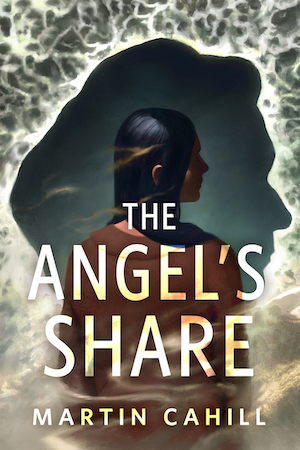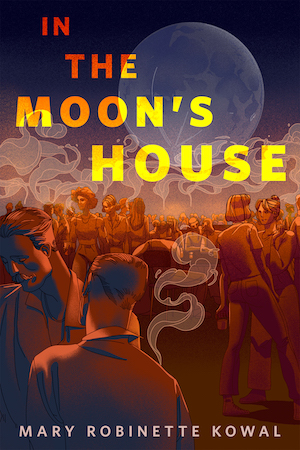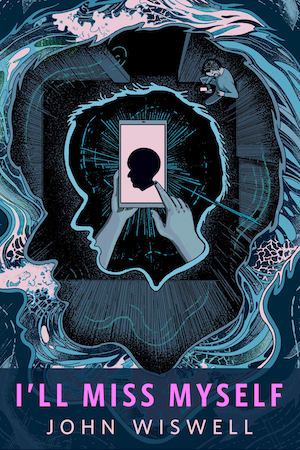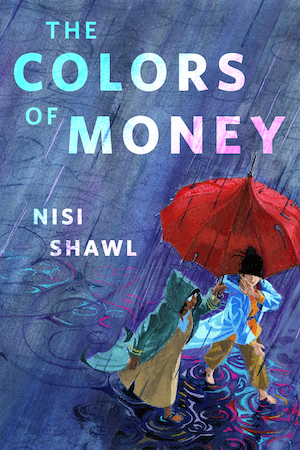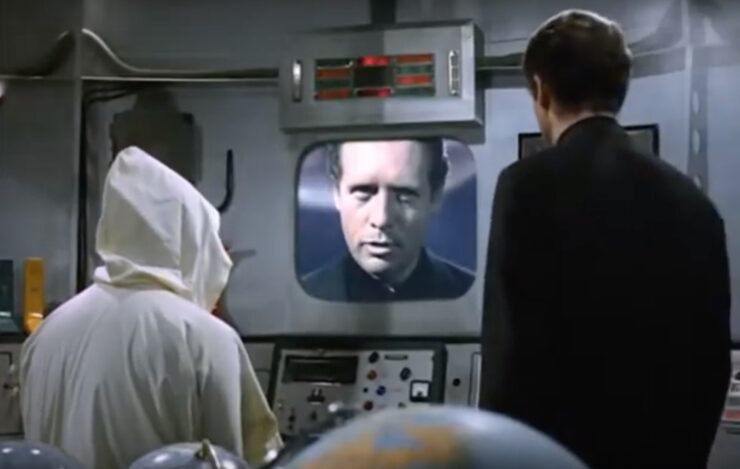I was introduced to The Prisoner, Patrick McGoohan’s 1967 cult dystopian TV show, by my Number Two. My father. (Who is Number One?) I was in middle school at the time, and my dad, possibly seeing my own rebellion on the teenage horizon, opened his proverbial desk drawer and took out this relic of a hit series to demonstrate that he wasn’t such a stranger to nonconformity himself. No, The Prisoner taught him well, and he was into it. Maybe this was meant to be the text that dismantled the image of my by-the-book parent. Maybe it was supposed to say, “Hey, I lived through the ‘60s, so, if you’re planning a revolt, guess what: I’m an expert.” Maybe there was some idea that, through The Prisoner, we could become partners in angst, and whatever disobedience my teen years would bring might be directed, well, away from him. Or maybe he just liked the show. Lots of the dads of my generation did.
While some Millennial fans may have come to the show on their own, every single one I’ve talked to has stated the same, brief origin story: “My dad got me into it.” As Goethe once said, “You must be paternal Prisoner fan, or offspring inheritor of the fandom” (citation needed).
So what was the appeal? For my father, it started with McGoohan’s earlier work in what was known in the U.S. as Secret Agent (Danger Man in the U.K.), which introduced many to John Drake, an expert NATO operative who could wrap up complex international mysteries in 24-49 minutes. Therefore, momentum had already been generated as fans met Number Six, The Prisoner’s Drake-ian ex-government agent protagonist who had enigmatically resigned from his job, but was not resigned to his fate as a captive in the insidiously picturesque village meant to break him.
While McGoohan insisted John Drake and Number Six were two different characters, others, including some who worked on The Prisoner, claimed they were the same people. A similarity in look and affect cannot be denied, and this familiarity may be grounding as the two shows could not be more tonally separate. Where Secret Agent presents a recognizably routine procedural, The Prisoner starts in a place Orwell would recognize, and ends in Beckett territory. In the latter, there is a ruling body with a rotation of Number Twos governing The Village for an invisible Number One, utilizing almost magical surveillance and flat-out fantastical security (the weather balloon-shaped Rover designed to catch escaping prisoners) to extract information and dissolve the individuality of inmate “residents.” All of this, for my father, was part of the 1960s zeitgeist. It was a way to either complement one’s own countercultural push, or, in the case of those like my dad, witness a recognizable version of it from a safe distance. Watching an episode, especially one of the more experimental ones from later in the 17-installment run, feels similar to getting wrapped up in the delightful yet subversive absurdism of a movie made by The Beatles—who famously were Prisoner fans themselves—even going so far as to permit the use of their music in the show’s finale.
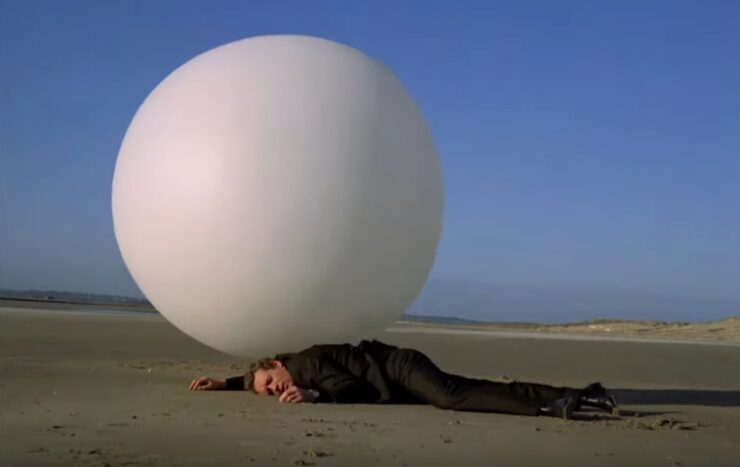
And, largely, these are the show’s qualities that have endured: spy, captive, Village, numbers, weird, surveillance, totalitarianism. Today’s fans, myself included, often shudder as we trace which pieces of The Prisoner have expanded in our time, the doomscroller version of Trekkies tracking the growth of their utopia. In doing so, we make McGoohan’s Number Six into a hero, the man who stood up to The Man, the one who escaped. The Prisoner fan communities have been around practically as long as the show itself, but, now, many of us second generation fans have grown up to join the O.V.s (Original Villagers), making the world of Prisoner fandom as built-out as ever. I recently re-watched the series on a new Blu-Ray transfer. I and many others marvel at the first wave of Prisoner action figures, made beautifully by Wandering Planet Toys. There are comics, T-shirts, buttons, replica costumes and props, and even a reboot we all rightly ignore. The way in which this fandom is here, now, feels exciting, innovative, and full of bonding for all of us ‘90s middle schoolers gobsmacked to find that we were not alone when our respective fathers unsheathed a strange VHS tape and said, “Try this.”
It is a great time to be a fan of The Prisoner. However, we have also, broadly speaking, skipped a step. Those words that come up whenever we speak about the series—spy, captive, Village, numbers, weird, surveillance, totalitarianism—feel so agreed upon. There is no question all of that is in the show, and it is even, in many ways, what the show is about. But, for a series as chaotic and multi-layered as The Prisoner, the task of reading it should be bigger. And while The Prisoner surely contains multitudes, one particular idea highlights itself when I consider both McGoohan and the show’s repeated themes, but runs silent in most common discourse around the series.
Before I delve into that, though, let me just say: Patrick McGoohan would hate where I’m going with this. I’m okay with that, mainly because it seems, from the few interviews he gave, he generally hated a lot of things, but I do want to be clear that my reading would likely not be his. To preview this slightly: I’m about to discuss some of the religious overtones in both McGoohan’s life and in The Prisoner, but, in a filmed 1977 Canadian interview titled “The Prisoner Puzzle,” the star said, with regard to a moment in the final episode, “No, I never intended any religious inspiration for that whatsoever…maybe somewhere in the back of my mind it was there…”
So, insofar as the author is in the room, I’m choosing to live in the space provided by the second half of that quoted excerpt rather than be limited by the first part. More importantly, though, Roland Barthes writes about the necessity of separating the art from the artist so as to remove the “interpretive tyranny” that comes with putting authorial intent on a pedestal, and I can’t imagine Number Six would mind the destruction of tyranny, so, here we go.
Typically, it would be irresponsible to intertwine a TV show’s star with so much of its plot-and character-based meaning, but The Prisoner was so much McGoohan’s brainchild. He said it himself in the documentary In My Mind, “The general theme of The Prisoner has been with me for years, ever since I was a little boy, being brought up in a very strict religious household…” Here, McGoohan takes ownership of not only the show, but of the personal experience that influenced it. This gives us license to view the narrative as connected, deeply, to McGoohan, and perhaps interacting with the religion that may have both enlightened and imprisoned him.
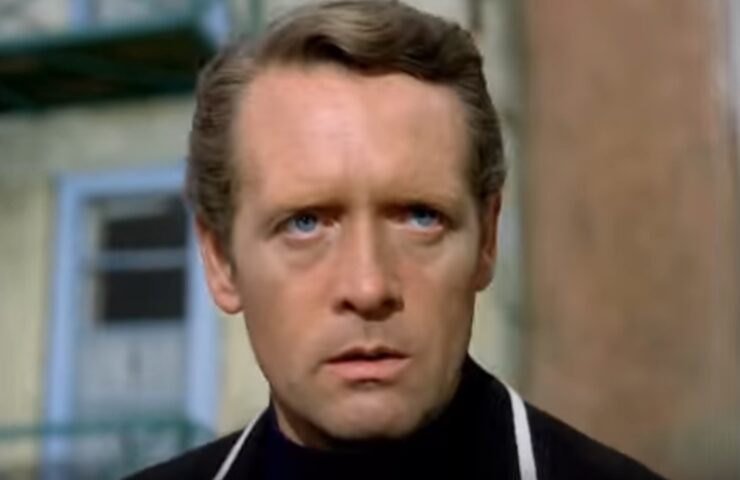
Patrick McGoohan was Catholic. While many have dedicated blog posts, articles, and book chapters to quantifying his devotion, there are a few pieces of information frequently mentioned to this end. Born in Astoria, Queens in 1928 to Irish immigrants, he was raised in the Catholic church and reportedly wanted to be a priest until the age of fifteen. Sources often repeat that he turned down the role of James Bond (and The Saint) due to the excessive sex and violence, and refused to do any scenes that were remotely intimate in any of his television work. Some root this in his adherence to conservative Catholic rules around marital behavior, and others locate it in McGoohan’s intense uxorial loyalty regardless of faith (he was married to actress Joan Drummond McGoohan for fifty-seven years, until his death, writing her daily love notes and was, by all accounts, unwavering in his fidelity). McGoohan complexifies this image a bit, however, in a 1983 interview preserved in the documentary In My Mind. In that conversation, McGoohan says (TW: mention of rape, a film title that contains cultural insensitivity):
“There’s a lot of stuff that’s been talked about, the fact that I’m a prude and I don’t believe in sex and violence and all this sort of nonsense. Anyone who says that should go and see a movie called The Gypsy and the Gentleman where I threshed around in the hay with Melina Mercouri for a considerable amount of time, and another one, I can’t remember the name of it, it was awful, where I had to rape the young Canadian gal, but that wasn’t for the telly.”
If this accurately reflects his stance, McGoohan felt that television should not be the place for sex or violence because that came into people’s homes, whereas the movies had to be sought out by interested parties. Of course, that still leaves a question mark around the actor’s alleged rejection of the role of cinematic James Bond (Rubert Booth, in his biography of McGoohan, insists the reason surrounded the “sex and violence” of the character, as well as 007’s “simplicity” and treatment of women), but it does help pull into focus a contrast between the public perception of McGoohan and the internal logic that governed his own decisions.
To that end, some of McGoohan’s remarks portray a man whose private faith was in conflict with the institutional Catholicism of which many have made him a stalwart. This is perhaps no more clear than in an interview that emerged in 1995, conducted prior, in which McGoohan talks about his experience working on the film Catch My Soul. McGoohan says, “Unhappily, in the process of making the film, [the producer] got religion. Catholicism. He became a convert; he took the film and recut it…The result is a disaster…he added 18 minutes of religious stuff. Ridiculous.” None of this invalidates any personal beliefs McGoohan may have had, but it does allow us to see a level of frustration he felt toward at least one person whose dogma became all-consuming. If one maintains the image of young McGoohan aching to be a priest, it may be tempting to lump him in with such people, but listening to his adult remarks proves him to be a much more multifaceted person.
I believe this is what The Prisoner is about. It is about a man held hostage by an institution that could be, among many possibilities, the church. It vexes him that he cannot meet Number One; God, in this analogy. He only has access to a revolving door of Number Twos, Popes, who act as intermediaries that are not to be questioned. Those who have accepted The Village are passive, or, as Karl Marx might say, quelled by the “opiate of the masses,” which, in his view, was religion. Those Villagers engage in ritualistic call-and-response (“Be seeing you.”/”And you!”) without always unpacking who will be seeing what. While this isn’t entirely the same as the Catholic “The Lord be with you.”/”And with your spirit.” exchange, it evokes a similar insider shorthand for mutual participation in a larger, more intricate system. The Village, one gathers, is both distinct and not entirely separate from the organization that previously employed Number Six, as learned from their use of sights and sounds from his prior life in order to make information extraction attempts.
The Catholic Church, too, gave McGoohan rise, but also, per his Catch My Soul interview, morphed into an irksome influence in his adulthood. When this happens, some might say escape is both necessary and an emotionally tall order, easy and hard at the same time. Likewise, escape from The Village should be easy—there is a map, borders, all one has to do is get beyond them—but it is infuriatingly difficult for reasons that become increasingly outlandish, almost as if they are the property of another realm, as much in religion also seems. Initially, Number Six’s question—“Who is Number One?”—sounds logical, and it is pursued linearly, but, as our protagonist gets closer to the answer (or some semblance of one), the narrative itself spins ever more into the bizarre. The Prisoner is chased by deranged carnival goers (“Dance of the Dead”), Number Six becomes a pawn in a game of human chess (“Checkmate”), body swap becomes routine (“Do Not Forsake Me Oh My Darling”), Number Six is in a Western all of a sudden (“Living In Harmony”), and childhood regression literally happens (“Once Upon A Time”). The show descends into madness as Number One gets closer and closer—Divine Madness, or the ecstasy of religious enlightenment, perhaps, or that of the generally brimstone-y Deuteronomy 28:28, which promises madness for those who disobey the Lord. The uncertainty over whether one’s nonconformity will bring reward or punishment is very much relatable to experiences within certain religious institutions, as well as in The Village, with faith offering the idea that one never truly knows until the ultimate escape is made.
No clearer is this at play than in the series finale, “Fallout.” In this episode, we see a version of the crucifixion (again, a reading denied by McGoohan) where three men are strapped upright into platforms on tubes, a Golgotha of sorts. Two of these men are judged to be wrongdoers, while one, Number Six, receives the throne and transcendence marked by the shedding of his number and the bestowment of a name, or at least a title: “Sir.” Number Forty-Eight, one of the other two captive men, sings the spiritual song “Dem Bones” while causing absurdist distraction throughout the underground lair that is the centerpiece of the episode. Given the imagery, it is hard to hear the words “Now hear the word of the Lord” and resist the idea that it is, in some ways, the Lord we’re talking about.
When McGoohan rampages through the bunker to the tune of The Beatles’ “All You Need Is Love,” he encounters, at last, a hooded figure bearing the numeral “1,” who he unveils twice. This moment, measurable in seconds, contains the crux of McGoohan’s conflict. The first layer of “1” to be shed is the hood, which holds a black-and-white mask over the face. This says to me that whatever answer one gets to who is in charge won’t be of a binary, as we just shed that. Then, an ape mask is revealed as worn under the black-and-white one, which, to me, evokes evolution, humanity’s origin, arrived at through human empiricism, creating a worldview the Catholic church made room for in 1950, while other more fundamentalist Christian faiths still have yet to. Regardless, says this moment, the answer to “Who is Number One?” will be as old as our species.
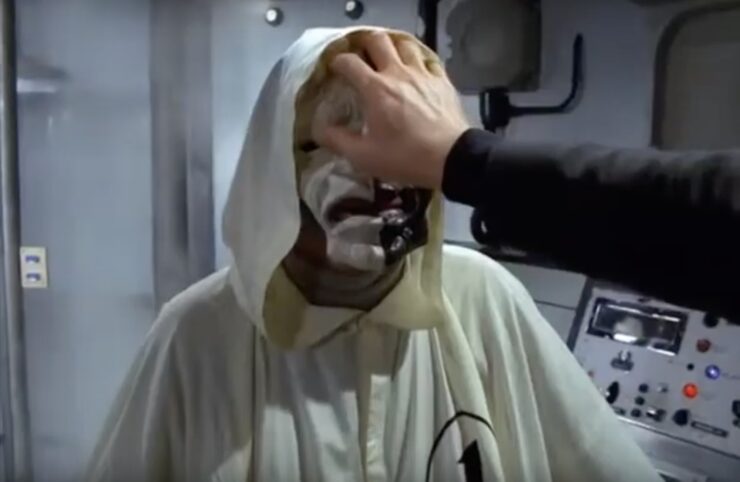
Then, at last, this final mask is removed to reveal Six himself, laughing maniacally, “evil,” in McGoohan’s explanation, but I don’t know. I read it simpler, and maybe more optimistically, than that. If you want to find the being that is truly in-charge, look no further than the self. This doesn’t have to be a message about God, but, if it is, then it’s the idea that God isn’t the institutional icon, but what’s in the mirror. There is maybe a frustration that comes with that, as one realizes there was no need for the prison after all, but there’s some liberation there, too. If that which is powerful enough to create trappings as clever as The Village resides inside oneself, then perhaps that power can be used positively, securing a freedom uncontainable by other boundaries that can only be weaker than the divine.
After this, it makes sense for The Village to explode. Six, affirmed by revelation, sees that the point is no longer to constantly fend off that which intrudes on the life he envisions for himself, but to exist on his own terms no matter what surrounds him. The grandness of this awakening makes Six, or Sir, able to shrink down into the in-between space buffering The Village and the rigid individual and find solace there, knowing that Truth uses the tools of what he was taught to be so much more. In “Fallout”’s final moments, we see a free prisoner living his life in a world where his wardens, opaque figures cloaked in black and wearing top hats who have presumably pulled many of The Village’s nefarious strings all along, also roam. But that is no longer the free man’s concern. The wardens will always be there, on this plane of existence anyway, but, now he knows, so will he.
I am glad Six ended up there. I wonder if McGoohan ever did. I understand the conflict of both wanting to embrace the scaffolding of faith and reject its inflexibility at the same time. I am a queer Greek Orthodox person. I am not Catholic, but our similarities exist more than, sometimes, our institutions have historically cared to admit. I do not speak modern Greek, much less the Ancient Greek that many of our masses are given in. I sit in my pews and stare at the large icon of Number One on the church ceiling. I don’t know what my priest is saying, so I’ll often replace his words with what I imagine God’s to be: “Hey. I love you. I love you all. Especially all you gay ones. Like, the literal gayest ones. Y’all are awesome. Black Lives Matter. Today my pronouns are xe/xem, but check with me tomorrow because my fluidity is legendary. Can someone TiVo RuPaul’s Drag Race for me? Are y’all still doing TiVo? It’s a big universe and sometimes I forget who’s still doing TiVo…” I go on from there; it’s a long service. I figure that, if I am wrong, there are many people who have devoted a lot of time to telling me I’ll find out in the worst way soon enough. I think they’re wrong. I think God is not in the “1” but in the “I,” not in the first, the top, the best, but in the every, the individual. I am glad Six ended up there. I wonder if McGoohan ever did.
I’m not so sure. In “The Prisoner Puzzle,” Patrick McGoohan states, “We’re run by the Pentagon. We’re run by Madison Avenue. We’re run by television…I think it’s going on every day all around us. I had to sign in to get into this [building where the interview took place].” Yikes. It may seem strange that McGoohan indicts TV, here, having been such a famous star of it, but it’s part of his M.O. Television, the Catholic church, even The Village: these are all institutions that have felt the ire of McGoohan’s rebellions, but did McGoohan’s reflections ever lead him to reckonings with his own roles within their power structures? I don’t know, but interviews like these paint for me the portrait of a man who has perhaps punched his way out without understanding the depths of that response’s insufficiency.
It’s hard to extrapolate how this would have developed if McGoohan made it to the era of Alex Jones conspiracy theories, Pizzagate, COVID, and “cancel culture,” but it is hard to hear a straight, able-bodied, cis, white man of privilege say the oppression is going on “every day all around us.” I’m not saying it isn’t, but, in my experience, when a man of this demographic says this, the next pivot tends to be toward the extreme that puts himself at the center of the persecution. Maybe I’m projecting here, finding it impossible to forget the last time I heard a rant like this from a privileged cishet white dude who followed it up with, “There is one oppressed minority in this world, and it is the white man.” (I say again: yikes.)
It may be here that we, like Six, have to become so enlightened we live in the small in-between. We may have to acknowledge that while we can translate the oppression of Six into lessons for our society, McGoohan is not the face of the oppressed. None of this should erase the very real personal pain McGoohan may have felt in his life, and it certainly shouldn’t deny that the Irish people have confronted unimaginable historical brutality. It is simply to make sure that, in the present, we paint portraits of justice and injustice that serve the true demographics of those most impacted. With legislative attacks on Trans bodies, Black folks too often facing a life-or-death decision every time they open the door, abortion access ever more curtailed, a reactionary Supreme Court, a Far Right that often wears a Cross while committing the worst of atrocities, a 500% jump in the use of the N-word on Twitter, a 339% spike in anti-Asian hate crimes in 2021, ninety-three school shootings in the 2020-2021 school year (the highest yet since recording began), and so many other horrors facing communities that look nothing like McGoohan, the polite dystopia of The Prisoner falls short of literalizing our most urgent needs for equity. That doesn’t require us to forget the show—I am a huge fan—but it means we have to go deeper than it could as a project that, when it comes to creator McGoohan, is as specific as psychological autobiography.
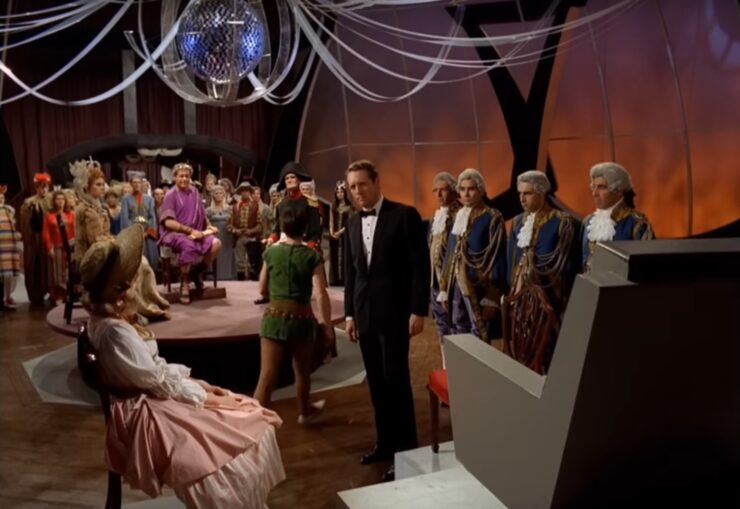
The story is a personal one from which we can, and should, draw societal allegory, but, to do that, we have to recognize some of its limitations. I hope McGoohan found the God in the “I,” but I also hope he held closer the God in other people’s “I”s. Some reports of his behavior—drunkenness that led to fistfights on set (per actor Gertan Klauber), insults hurled primarily at women (per Scanners’ Jennifer O’Neill)—make me worry that he saw too clearly the Number One in himself, and, figuring that was enough, didn’t perhaps always make it to the God in others. Some might say this assessment isn’t harsh enough, while others might say the truth is far more positive (Catherine McGoohan, Patrick’s daughter, spoke of his love for those on his Prisoner production team). For a man whose frustrations with institutional religious overreach brought him not to therapy but a seventeen-part series sometimes written in a code that would give even Alan Turing a run for his money, it’s the best I can do. The Prisoner taught me how to live between these layers, even when I can’t define what all the layers are—an existence one might even call, to set aside the Catholic imagery for a moment, zen. I can’t say if that is because or in spite of Patrick McGoohan, but it is probably a little of both.
This is the place my Number Two could not go. When my father introduced me to The Prisoner, his Number One was most certainly a very specific, structured God. The institution that built that structure also governed, through my dad, the home in which I grew up, as it had the house of his childhood. On some level, he, like more men of such institutions than we realize, knew the patriarchal dominance prescribed by hook or by crook didn’t feel natural. There surely was a better way, but the Rovers of upbringing, eternal anxiety, and nostalgia kept returning him to The Village. He didn’t resign, not then, but he knew resignation was a big deal. If one resigned, my dad understood that the men in black robes would want to know why. Resignation isn’t simply leaving one’s job. It’s stepping back from the station the institution has assigned to you. That’s a form of resignation I became all too familiar with when I came out as Non-Binary, and suddenly all of the old school Greek Orthodox residents of my paternal Village wanted to know why.
In my case, my resignation wasn’t a secret, not from the Internet, not from my friends, and certainly not from God. I wrote about it every chance I got, and I’m writing about it again, now! I never denied the fact of my resignation; I just chose who I wanted to explain it to, and these Number Twos didn’t make the cut. Their vision stopped at the borders of their Village, and I knew my beauty, being beyond those boundaries, could never be seen by such small numbers. It isn’t that Number Six didn’t want to explain his resignation; he just didn’t want to explain it to them. I get it. Justifying your truth to the grouchiest Cis-of-the-Week is exhausting. That’s where community comes in. Community isn’t a map. It’s a fluid blob that can spread out over huge distances or contract into one room, one book, or one article. The Village knows it can’t build a wall that is immune to fluidity, so it makes prisoners very afraid of the wall cracking. But a cracked wall isn’t scary once you realize that you are liquid. My realization became my resignation, which washed away that Village. It made me happy, but there were times I thought I would drown, still. The threat of that feeling was enough to keep resignation, or at least his version of it, at arm’s length from my Number Two. My Number Two, like Leo McKern’s, tries desperately to patch the cracks in the wall, some of them made by the impact of his own hand.
I still wonder where God is in all this. I move through the world with no answers, but with lots of delight in what I encounter. Don’t get me wrong, I also have all of the anxiety, though the joy helps me cope. One of my favorite pleasures is how we humans have acknowledged some aspects of our daily lives are so incomprehensible, so unanswerable, so unclassifiable, so scarily unknown, that we have, for centuries, just decided to write about them in terms of giants, and fairies, and robots, and superheroes, and, in at least one case, impossible Villages. The nebulousness of this world, and what lies beyond it, kind of short-circuits us until we shrug and go, “Could it be like a weather balloon that smothers you?” Whether there is a God, or many Gods, or no one special, I hope someone is watching if only to get a kick out of that.
The Prisoner, in my view, stems in part from Patrick McGoohan’s singular, personal attempt to respond to his anxieties around finding God. This article stems in part from my own anxieties around meeting Patrick McGoohan, a slap I’ll have to take in another realm, perhaps. But deeper than that, it is all a reminder that escape isn’t dependent on which lone wolf can run the farthest along the ever-looping shoreline of our fears, but how our communities can dive deeper together toward the depths of our shared loves, decoding each other’s traumas along the way. In so doing, escape becomes not a cave where we hide, but a tunnel that bursts into new thoroughfares of connection. Dem bones is all we have, but I think that’s enough, so long as we’ve built a place where everyone feels safe enough to show them off. Once we’ve got that, it won’t be Number Two or Number One or even God we’ll be seeing, but rather we’ll
be seeing you
and that’s all we ever needed to see.
Jonathan Alexandratos (they/them) writes and TikToks about toys. You can follow them on said platform @danceswithtoys.


